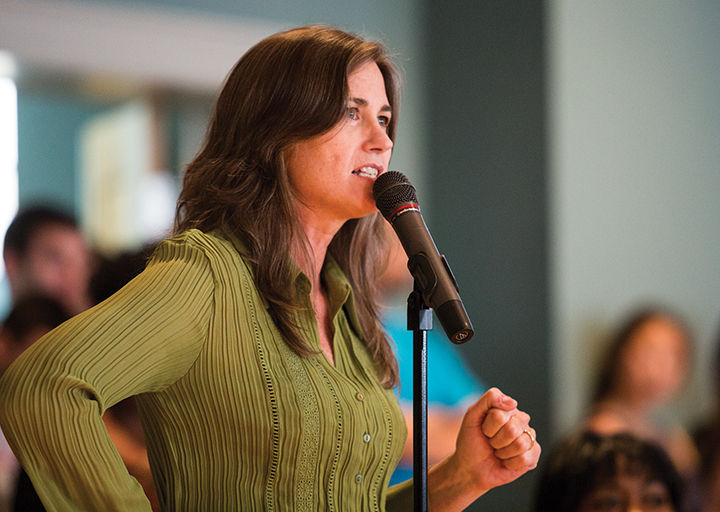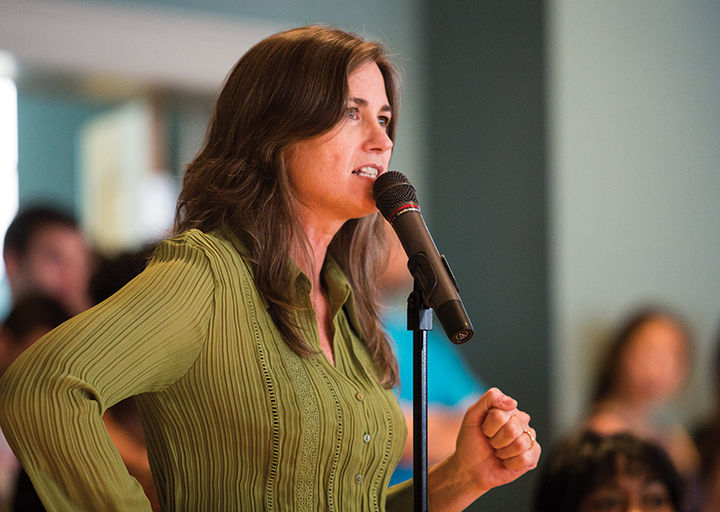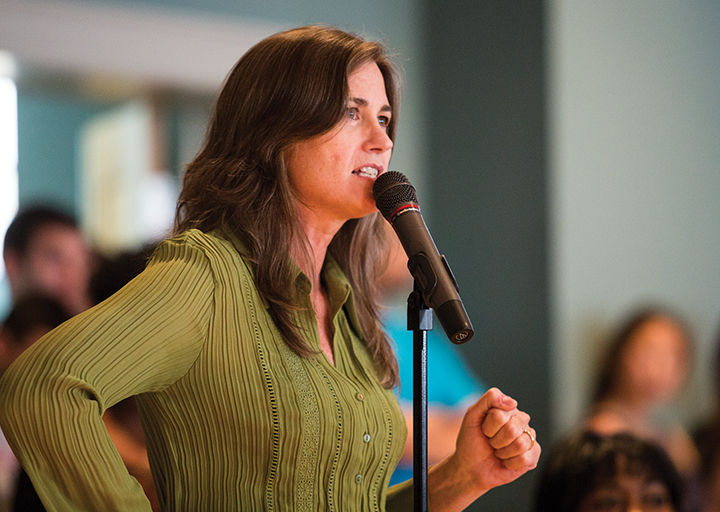The Office of Civil Rights and Sexual Misconduct trained University Police officers on conducting trauma-informed investigations of incidents such as domestic or sexual violence.
The training happened over three days — Oct. 12, Oct. 22 and Nov. 9 — and involved all University Police officers as well as some law enforcement officers from Prince George’s County and prosecutors from a state’s attorney’s office, said Catherine Carroll, who assumed her role as the university’s first Title IX compliance director in March 2014.
“We all agreed to work together and make sure we were on the same page,” University Police Capt. Joanne Ardovini said. “We’re working on our relationships with groups that can help us more broadly in dealing with events like sexual assault.”
University Police reported 21 on-campus rapes in the past three years, according to its annual security report. The Title IX office received 20 rape complaints in its first year.
READ MORE: University of Maryland expels record number of students for sexual assault
Over three training days, officers learned about how the brain functions in normal and traumatic situations, how to interview victims and how to write an effective incident report, according to the training agenda. The training material was based on information from the International Association of Chiefs of Police, said Josh Bronson, Title IX office assistant director and sexual misconduct investigator.
One aspect of this training focused on the importance of conducting an effective trauma-informed interview, through which officers use their knowledge of the impacts of trauma on victims to gather details and information from the victim. The training also discussed what a typical offender looks like and how offenders choose their victims and use alcohol to target them.
University Police Chief David Mitchell said this was the first time the entire department, not just detectives, trained in trauma-informed investigations.
“We want to make it so officers have all of the tools in the toolbox that they need to be effective, and we’re finding out what tools Title IX will help us provide,” Ardovini said.
In the past, Ardovini said, different groups have done specific trainings geared toward their professions — such as detectives going through separate interview training — but the concept of training is ongoing.
READ MORE: SGA forms ad hoc committee to push for in-person sexual assault training
“It’s important for us to stay current as a department, and participating in these trainings shows our commitment to find the best way to do that,” she said.
Although a traumatic event could affect a victim’s memory and emotional state, an officer with the right training can still get a complete picture of what happened, Bronson said.
“Usually, the first person that a victim would talk to after a crime is a patrol officer or dispatcher,” he said. “Trauma can impact a survivor greatly, and we want this interaction to make the victim feel better and still get the information for a better investigation.”
Mitchell said the main takeaway from the training is that there is more than one option for victims on the campus. Now, police officers in addition to members of the Title IX office have the skills and techniques to help victims of traumatic events.
Title IX is “a resource for us to assist when we have an investigation underway,” Mitchell said. “It’s a partnership where we’re all seeking the truth to ensure that justice is carried out.”
READ MORE: CARE recognizes sexual assault survivors for Domestic Violence Awareness Month
Ardovini said she hopes that as a result of the training, victims of sexual assault and other crimes would feel more comfortable reporting to University Police and would have a more positive experience.
“No victim is going to get brushed off,” she said. “We want people to walk away saying, ‘I met an officer who actually helped me and listened to me.’ They deserve that compassion.”
Title IX Officer Catherine Carroll responds to a student question at a town hall meeting to discuss issues of racism and sexual violence on the campus and in Greek Life on April 2, 2015.
Title IX Officer Catherine Carroll responds to a student question at a town hall meeting to discuss issues of racism and sexual violence on the campus and in Greek Life on April 2, 2015.





